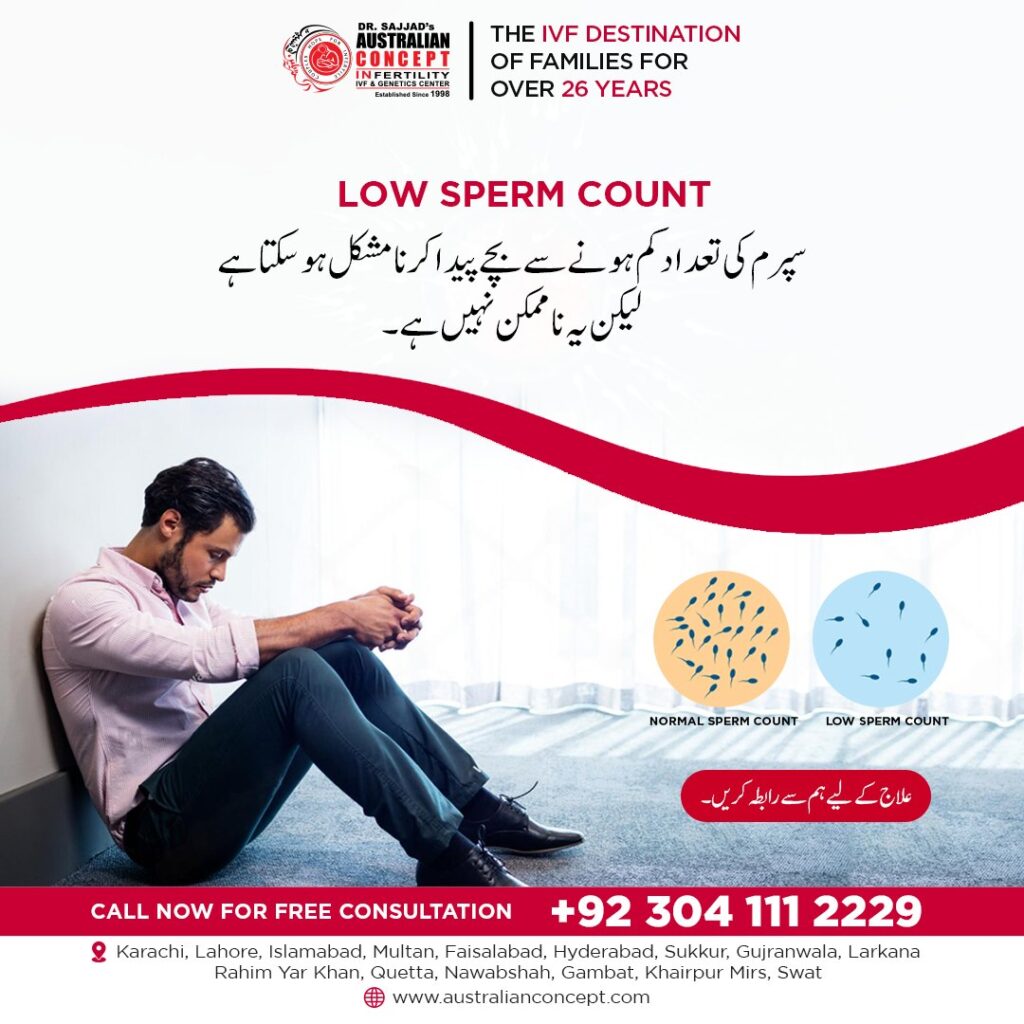
Age is a crucial factor in male fertility. Unlike women, who are born with a set number of eggs, men produce sperm throughout their lives. However, as men age, both the quantity and quality of sperm can decline.
How Aging Affects Sperm Count
- Decline in Sperm Production
As men age, their sperm production tends to decrease. Research shows that sperm count declines gradually after the age of 40. While some men may still produce healthy sperm well into their later years, others may experience a more significant drop in quantity. Regular semen analysis can help determine if sperm count is within normal ranges and guide further action. - Lower Sperm Concentration
Aging is associated with a decrease in sperm concentration. Sperm concentration refers to the number of sperm per milliliter of semen. Studies have found that men over 50 often have lower sperm concentrations compared to younger men. This decrease can impact fertility, making it harder for sperm to reach and fertilize an egg.
How Aging Impacts Sperm Quality
- Decreased Sperm Motility
Sperm motility refers to the ability of sperm to move efficiently. Aging can negatively affect sperm motility, leading to reduced swimming ability. Poor motility makes it more challenging for sperm to travel through the female reproductive tract and reach the egg. - Increased Sperm DNA Fragmentation
As men age, the quality of semen DNA can deteriorate. DNA fragmentation refers to breaks or damage in the genetic material. High levels of DNA fragmentation can lead to problems with embryo development and increase the risk of miscarriage. - Testing for DNA fragmentation is not always included in standard semen analysis but can be an important factor for older men seeking fertility treatment.
- Higher Risk of Genetic Abnormalities
Aging can increase the risk of genetic abnormalities in semen. Older men are more likely to produce semen with chromosomal abnormalities, which can lead to conditions like Down syndrome or other genetic disorders in offspring. This risk underscores the importance of thorough genetic screening, especially if infertility is an issue.

Treatment Options for Age-Related Fertility Issues
- IVF Treatment
IVF (in vitro fertilization) is a common treatment for couples facing fertility challenges, including those related to age. IVF allows for the direct fertilization of eggs outside the body, increasing the chances of successful conception. - For older men, IVF can be combined with advanced techniques like semen washing or ICSI (intracytoplasmic sperm injection) to improve outcomes. The best fertility clinics in Pakistan offer personalized IVF treatments to address age-related fertility issues.
- ICSI Treatment
ICSI is a specialized form of IVF where a single semen is injected directly into an egg. This technique is particularly useful for men with low sperm count or poor sperm motility. ICSI helps bypass many of the natural barriers to fertilization and can be a highly effective solution for older men facing fertility challenges. - Semen Analysis and Diagnosis
Semen analysis is a crucial tool for assessing sperm count, concentration, motility, and morphology. It provides detailed information about semen health and can help diagnose issues like azoospermia (the absence of sperm in semen). Regular semen analysis can guide treatment decisions and help determine the most appropriate course of action. - Azoospermia Treatment
Azoospermia is a condition where no sperm is present in the semen. It can be caused by various factors, including hormonal imbalances, genetic issues, or blockages. - Treatment options for azoospermia depend on the underlying cause and may include medication, surgery, or assisted reproductive technologies like IVF and ICSI. The best fertility clinics in Pakistan can provide comprehensive evaluation and treatment plans for azoospermia.
Preventive Measures and Lifestyle Changes
- Healthy Lifestyle Choices
Maintaining a healthy lifestyle can positively impact semen quality and overall fertility. Regular exercise, a balanced diet, and avoiding smoking or excessive alcohol can help improve sperm health. Men considering parenthood later in life should focus on these lifestyle factors to support optimal fertility. - Regular Medical Check-ups
Regular check-ups with a healthcare provider can help identify and manage any underlying health issues affecting semen quality. Conditions like diabetes, hypertension, and hormonal imbalances can impact fertility, so addressing these issues early can improve outcomes. - Genetic Counseling
For older men concerned about the genetic quality of their semen, genetic counseling can provide valuable insights. Genetic testing can identify potential risks and help guide treatment decisions to ensure the best possible outcomes for future pregnancies.
Conclusion
Age significantly influences sperm count and quality, affecting male fertility. As men age, they may experience declines in semen production, concentration, motility, and DNA quality. These changes can make conception more challenging but do not make it impossible.
Advances in fertility treatments, including IVF and ICSI, offer effective solutions for overcoming age-related fertility issues. Regular semen analysis and consultations with fertility specialists at the best fertility clinics in Pakistan can provide the necessary guidance and support.











